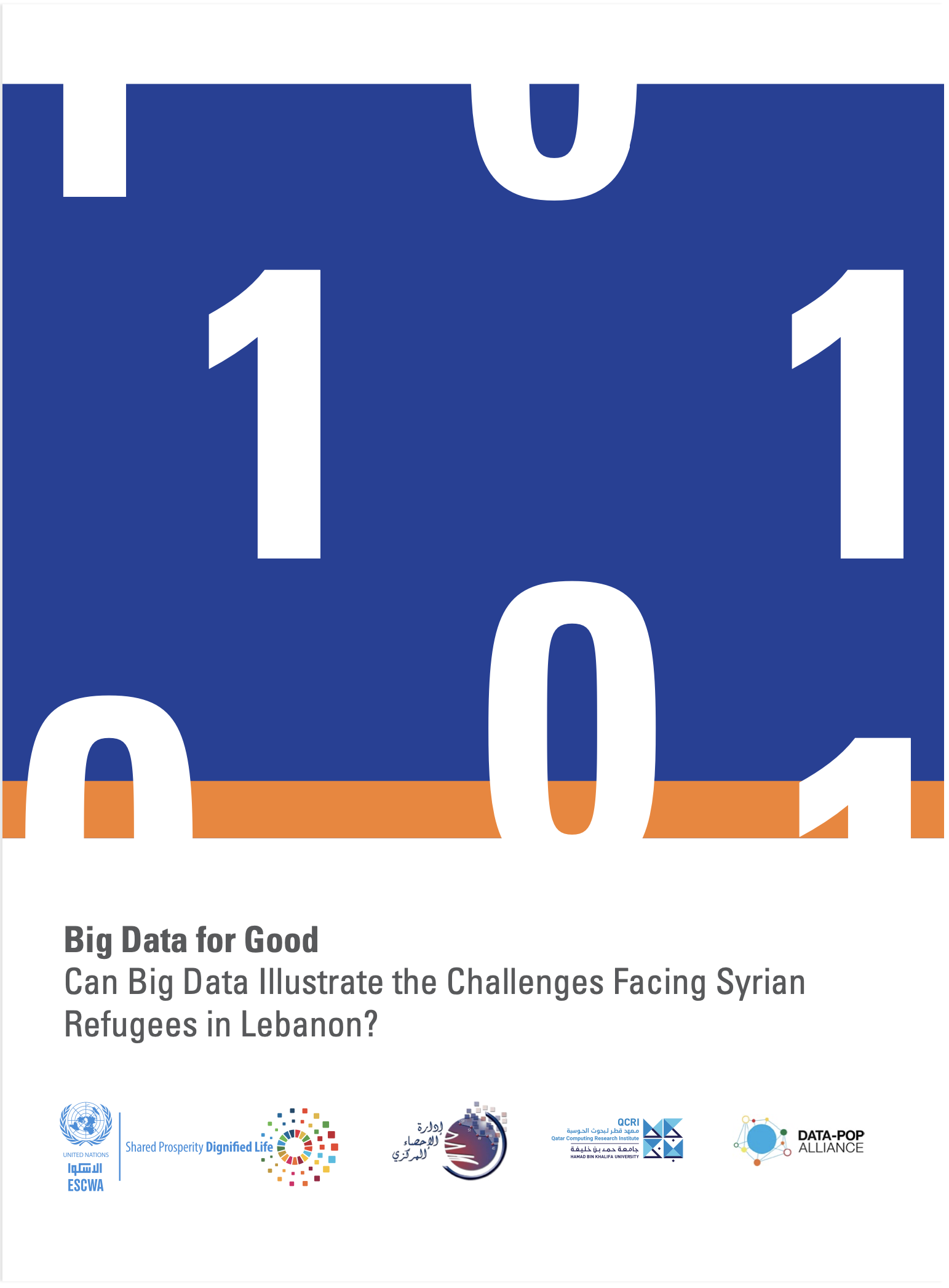In partnership with United Nations Economic and Social Commission for West Asia (UN ESCWA) and the Qatar Computer Research Institute (QCRI), this project aimed to understand the extent to which particular sets of non-traditional data sources — or crumb — and methodologies related to Artificial Intelligence can provide insights on the living conditions of Syrian Refugees and host communities in Lebanon. In particular, indicators related to human capital, poverty and demographics were explored. Data from the Central Administration of Statistics (CAS), UN agencies, telecom operators, social network data, amongst others, were used to shed light on the living conditions and interactions of Syrian refugees and local communities in Lebanon. Grounded in the Lebanese context, the project showed how these types of approaches may help national, international and local organizations develop better policies and programmes to meet these populations’ needs, while also providing pathways for them to weigh in on access to data about them.

Leveraging Behavioral and Humanitarian Data Sources to Analyze the Development Challenges Faced by Syrian Refugees and Host Communities in Lebanon
- Lebanon, Middle East and North Africa (MENA), Syria
- Geographies of Inequalities
- September 2019 to April 2020
- Partner(s): UN ESCWA (Funder)
